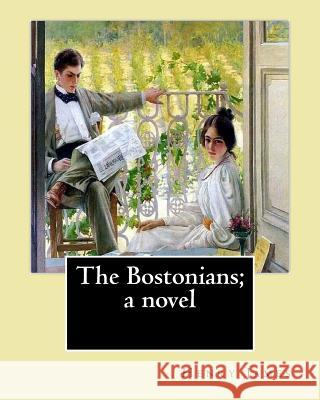The Bostonians; a novel. By: Henry James: Novel (World's classic's) » książka
The Bostonians; a novel. By: Henry James: Novel (World's classic's)
ISBN-13: 9781542626644 / Angielski / Miękka / 2017 / 238 str.
The Bostonians is a novel by Henry James, first published as a serial in The Century Magazine in 1885-1886 and then as a book in 1886. This bittersweet tragicomedy centers on an odd triangle of characters: Basil Ransom, a political conservative from Mississippi; Olive Chancellor, Ransom's cousin and a Boston feminist; and Verena Tarrant, a pretty, young protegee of Olive's in the feminist movement. The storyline concerns the struggle between Ransom and Olive for Verena's allegiance and affection, though the novel also includes a wide panorama of political activists, newspaper people, and quirky eccentrics. Mississippi lawyer and Civil War veteran, Basil Ransom, visits his cousin Olive Chancellor in Boston. She takes him to a political meeting where Verena Tarrant delivers a feminist speech. Ransom, a strong conservative, is annoyed by the speech but fascinated with the speaker. Olive, who has never before set eyes on Verena, is equally fascinated. She persuades Verena to leave her parents' house, move in with her and study in preparation for a career in the feminist movement. Meanwhile, Ransom returns to his law practice in New York, which is not doing well. He visits Boston again and walks with Verena through the Harvard College grounds, including the impressive Civil War Memorial Hall. Verena finds herself attracted to the charismatic Ransom. Basil eventually proposes to Verena, much to Olive's dismay. Olive has arranged for Verena to speak at the Boston Music Hall. Ransom shows up at the hall just before Verena is scheduled to begin her speech. He persuades Verena to elope with him, to the discomfiture of Olive and her fellow-feminists. The final sentence of the novel shows Verena in tears - not to be her last, James assures us............ Henry James, OM (15 April 1843 - 28 February 1916) was an American-born British writer. He is regarded as one of the key figures of 19th-century literary realism. He was the son of Henry James, Sr. and the brother of philosopher and psychologist William James and diarist Alice James. He is best known for a number of novels showing Americans encountering Europe and Europeans. His method of writing from a character's point of view allowed him to explore issues related to consciousness and perception, and his style in later works has been compared to impressionist painting. His imaginative use of point of view, interior monologue and unreliable narrators brought a new depth to narrative fiction. James contributed significantly to literary criticism, particularly in his insistence that writers be allowed the greatest possible freedom in presenting their view of the world. James claimed that a text must first and foremost be realistic and contain a representation of life that is recognisable to its readers. Good novels, to James, show life in action and are, most importantly, interesting. In addition to his voluminous works of fiction he published articles and books of travel, biography, autobiography, and criticism, and wrote plays. James alternated between America and Europe for the first twenty years of his life; eventually he settled in England, becoming a British subject in 1915, one year before his death. James was nominated for the Nobel Prize in Literature in 1911, 1912, and 1916.
Zawartość książki może nie spełniać oczekiwań – reklamacje nie obejmują treści, która mogła nie być redakcyjnie ani merytorycznie opracowana.











